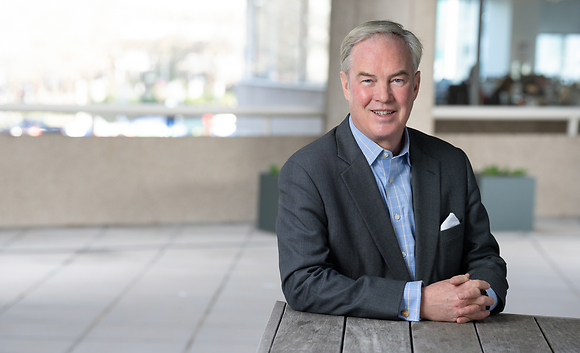Trevor Potter Quoted in The Associated Press, Super PACs Buy Time to Keep Secrets
01.07.2012
The Associated Press
Excerpt taken from article.
Independent political groups backing top Republican candidates are taking advantage of federal rules that essentially let them shield the identities of their donors until after important primary elections this month.
These political action committees, known as super PACs, notified federal election regulators in recent weeks that they intend to file their financial reports every month. Those requests, once approved, effectively will allow the groups to hold off disclosing the names of their contributors until after primaries in New Hampshire on Tuesday and South Carolina on Jan. 21.
Without the change, those groups would have had to file reports before the GOP primaries. That would have given voters a clearer picture of the wealthy activists who could have over-sized influence in the GOP race and the general election.
Just this past week, a new political committee supporting former Pennsylvania Sen. Rick Santorum made a similar request to the Federal Election Commission. It would delay the next filing deadline to Jan. 31 for the group, called the Red, White and Blue Fund. That's the date of the Florida primary, after which candidates with little money will find it hard to continue the race.
Groups backing GOP candidates Mitt Romney, Newt Gingrich and Jon Huntsman also have said they would begin filing monthly reports, which they said eases administrative burdens. Before then, these PACs filed reports quarterly, a practice they said required submitting tedious reports before each state's primary. Democratic-leaning super PACs have not yet asked for similar extensions.
The subtle administrative change is significant because such groups are expected to play a crucial role in this year's election.
In one case, the Romney-leaning Restore Our Future ran a series of attack ads against Gingrich that have been widely cited as a reason for the former House speaker's plummeting support. Gingrich placed fourth in the Iowa caucuses behind Romney, Santorum and Texas Rep. Ron Paul.
"It is secret money – you won't know until after the primaries have occurred who helped fund them," said Trevor Potter, a former Republican FEC commissioner and president of the watchdog group Campaign Legal Center. "Whether they're doing this for the right or wrong reasons, it's the opposite of what the disclosure system was designed to do."
Click here to read this article on GOP-leaning independent political groups' use of federal rules to shield their donors' identities.
Independent political groups backing top Republican candidates are taking advantage of federal rules that essentially let them shield the identities of their donors until after important primary elections this month.
These political action committees, known as super PACs, notified federal election regulators in recent weeks that they intend to file their financial reports every month. Those requests, once approved, effectively will allow the groups to hold off disclosing the names of their contributors until after primaries in New Hampshire on Tuesday and South Carolina on Jan. 21.
Without the change, those groups would have had to file reports before the GOP primaries. That would have given voters a clearer picture of the wealthy activists who could have over-sized influence in the GOP race and the general election.
Just this past week, a new political committee supporting former Pennsylvania Sen. Rick Santorum made a similar request to the Federal Election Commission. It would delay the next filing deadline to Jan. 31 for the group, called the Red, White and Blue Fund. That's the date of the Florida primary, after which candidates with little money will find it hard to continue the race.
Groups backing GOP candidates Mitt Romney, Newt Gingrich and Jon Huntsman also have said they would begin filing monthly reports, which they said eases administrative burdens. Before then, these PACs filed reports quarterly, a practice they said required submitting tedious reports before each state's primary. Democratic-leaning super PACs have not yet asked for similar extensions.
The subtle administrative change is significant because such groups are expected to play a crucial role in this year's election.
In one case, the Romney-leaning Restore Our Future ran a series of attack ads against Gingrich that have been widely cited as a reason for the former House speaker's plummeting support. Gingrich placed fourth in the Iowa caucuses behind Romney, Santorum and Texas Rep. Ron Paul.
"It is secret money – you won't know until after the primaries have occurred who helped fund them," said Trevor Potter, a former Republican FEC commissioner and president of the watchdog group Campaign Legal Center. "Whether they're doing this for the right or wrong reasons, it's the opposite of what the disclosure system was designed to do."
Click here to read this article on GOP-leaning independent political groups' use of federal rules to shield their donors' identities.
Attorneys
- Senior Counsel
